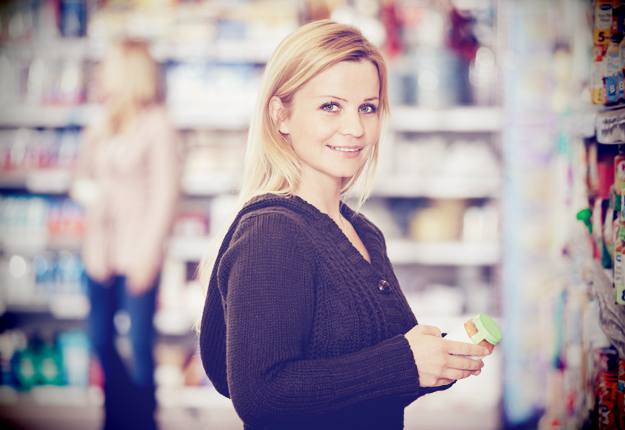Iron is one of the most abundant minerals on earth, and is essential to human life. It helps transport oxygen around our body into cells where it’s needed to provide energy, for growth and development and for healthy immune function. Iron also helps carry the waste product, carbon dioxide, back to the lungs.
The most common symptom of deficiency is tiredness and lack of energy. Other symptoms include paleness, weakened immune system and brittle nails. However there are also many other reasons why these symptoms may occur so a simple blood test from your GP is the best way to confirm.
Iron is particularly important during pregnancy, especially the second and third trimester, due to its role in DNA creation. DNA, which is the genetic ‘blue print’ upon which all our cells are built, requires iron for development. Iron is also required for protein metabolism, which further supports growth and development.
| Women 19 – 50 years | 18mg/day | 45mg/day |
| Women 50 – 70 + years | 8mg/day | 45mg/day |
| RDI | UL | |
| 14 + years | 27mg/day | 45mg/day |
| RDI | UL | |
| 14 – 18 years | 10mg/day | 45mg/day |
| 18 – 50 years | 9mg/day | 45mg/day |
Good dietary sources of iron include
Liver Chicken Beef Oysters
Turkey Tuna Pork Fish
Soybeans Lentils Kidney beans Molasses
Spinach Tofu
The average Australian diet provides around 15 – 20mg of iron per day. In times of increased need such as pregnancy, the body has the ability to absorb more iron from the diet to help support this increase need, however supplementation can also be beneficial to support healthy levels. When choosing a supplement, it’s good to look for one, which also contains vitamin C and folate to support absorption and healthy foetal growth or a good prenatal multivitamin should provide a healthy dose of iron. Supplementing between 10 – 25mg particularly during the second and third trimester is recommended to help support healthy development. No more than the Upper Safe Limit (UL) of 45mg per day should be taken unless under medical supervision.
When it comes to choosing an iron supplement it’s not only important to look for the right dose, but also the right form of iron. Chelated iron preparations are the easiest absorbed forms of iron (often listed as iron amino acid chelate) and can help reduce side effects such as nausea and constipation.
As iron is so essential to human life, to help ensure levels never become deplete, our body actually has no means by which to excrete iron. However, as a heavy metal, iron can also be potentially toxic, therefore uptake is tightly regulated by the body. If iron stores are high, the body actively decreases the amount of iron absorbed. Therefore toxicity via dietary sources is unlikely. However this absorption process can’t be shut off entirely and stores can build up if excess supplemental iron is consumed. Excessive amounts of iron in circulation can cause critical damage to vital cells in the liver, heart and other vital organs, so high dose supplementation is not recommended unless under medical supervision.




















7:15 am
7:28 am
1:38 pm
10:22 am
9:37 am
11:23 pm
9:40 pm
9:52 pm
10:52 am
9:19 pm
10:11 pm
1:23 pm
12:11 pm
10:48 pm
7:57 am
5:12 pm
4:28 am
10:42 pm
10:47 pm
12:26 am
- 1
- 2
- …
- 10
- »
Post a commentTo post a review/comment please join us or login so we can allocate your points.